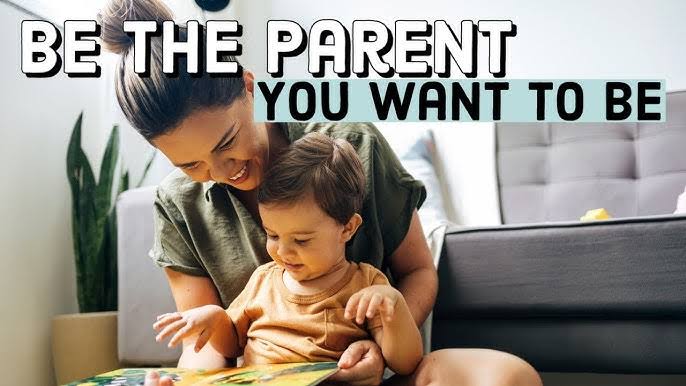Parenting today can be hard with busy lives, technology everywhere, and many emotions to handle. With work stress, screens, and changing social life, it’s harder but more important to raise kids with patience, kindness, and attention. By July 2025, more families worldwide are using mindful parenting techniques—a thoughtful, calm, and caring way to raise children that helps them grow emotionally strong and connected.
Mindful parenting is not about being perfect or never losing your temper; rather, it’s about showing up with awareness and intention. It allows parents to respond thoughtfully rather than react impulsively, leading to healthier relationships and more confident children.
Understanding Mindful Parenting
At its core, mindful parenting involves bringing full attention to your interactions with your child—free from judgment and rooted in acceptance. It is grounded in the principles of mindfulness: present-moment awareness, compassion, and emotional regulation. Unlike authoritarian or permissive parenting styles, mindful parenting emphasizes emotional attunement, curiosity, and open communication.
This method encourages parents to tune into their own emotions and patterns while also observing their child’s needs and behaviors with clarity and patience. This dual awareness promotes more thoughtful choices and nurtures an emotionally safe environment.
Key Techniques and Practices
Several techniques define mindful parenting, and while they require practice, they are accessible to anyone willing to be present and intentional in their parenting journey:
- Active Listening
One of the most powerful tools in mindful parenting is fully listening to your child—without interrupting, judging, or prematurely solving their problems. This helps children feel heard and respected, which in turn increases their willingness to communicate and trust you. - Emotional Self-Regulation
Mindful parents develop the habit of checking in with their own feelings before reacting. Instead of responding to tantrums or defiance with anger, they pause, breathe, and choose a calm, constructive approach. - Empathy and Validation
Rather than dismissing a child’s big feelings as overreactions, mindful parenting involves validating their emotions. Saying things like, “I can see you’re really frustrated,” helps a child process their feelings and develop emotional awareness. - Non-Judgmental Awareness
It’s easy to label a child’s behavior as “bad” or “manipulative,” but mindful parenting encourages a more objective view. Asking “What is my child trying to communicate?” shifts the focus from punishment to understanding. - Intentional Discipline
Discipline in mindful parenting is not about control but about teaching. Instead of yelling or issuing punishments out of frustration, mindful discipline involves setting clear, consistent boundaries while helping the child understand the impact of their actions.
The Psychological Benefits for Children
Children raised with mindful parenting tend to develop stronger emotional intelligence, greater resilience, and a healthier self-image. Research up to 2025 has shown that these children:
- Are more likely to self-regulate their own emotions and behavior
- Experience fewer anxiety and depression symptoms
- Exhibit better attention spans and cognitive flexibility
- Have higher empathy and social skills
- Feel more secure in their relationships with parents
The emotional attunement that comes from mindful parenting strengthens the parent-child bond and helps children feel safe enough to explore, take risks, and express themselves authentically.
The Benefits for Parents
Mindful parenting also transforms the parent’s experience. Parents who practice mindfulness often report:
- Less stress and burnout
- Fewer feelings of guilt or failure
- Greater patience and self-compassion
- Better conflict resolution skills
- A deeper sense of joy and fulfillment in parenting
By cultivating awareness and letting go of unrealistic expectations, parents free themselves from the toxic cycles of perfectionism and overreaction. This makes room for more authentic, connected experiences with their children.
Integrating Mindfulness into Daily Parenting
Mindfulness doesn’t require a quiet room or a yoga mat. You can practice it in the most ordinary parenting moments—like preparing meals, doing homework, or handling bedtime struggles. Here are a few ways to integrate mindfulness into your daily routine:
- Start with a Pause
Before reacting to a stressful situation, pause and take three deep breaths. This simple practice can interrupt a reactive cycle and create space for a more thoughtful response. - Name Your Emotions
Say aloud what you’re feeling: “I’m feeling overwhelmed right now.” This models emotional literacy for your child and helps you process your own emotions without acting on them. - Create Rituals of Connection
Small, consistent moments of presence—like reading together, sharing a meal without devices, or going for walks—build trust and emotional intimacy. - Be Gentle with Yourself
Mindful parenting doesn’t mean never making mistakes. When you lose your temper or miss a cue, apologize, reflect, and move forward. Your willingness to grow models accountability and emotional resilience.
Mindful Parenting in the Digital Age
In a time where screens and notifications compete for everyone’s attention, mindful parenting is more crucial than ever. Being present means putting down your phone, making eye contact, and truly engaging in your child’s world. It also means teaching your child to use technology intentionally, encouraging healthy boundaries around screen time, and modeling digital mindfulness yourself.
Long-Term Impact on Family Dynamics
Over time, mindful parenting reshapes the emotional climate of the household. It fosters a culture of respect, honesty, and openness where both children and adults feel safe being themselves. Conflicts are still present—but they’re handled with grace, communication, and mutual understanding. The family becomes a secure base, not just for growing children, but also for growing adults.
Final Thoughts
The power of mindful parenting lies in its simplicity and depth. It doesn’t require perfection or expertise—it requires presence. By slowing down, tuning in, and leading with empathy, you create a nurturing environment where your child can thrive emotionally, socially, and intellectually.
As more parents embrace this approach in 2025 and beyond, we are likely to see a generation of children who are not only better equipped to navigate life’s challenges, but who also know how to parent mindfully themselves—creating a ripple effect of compassion, connection, and emotional wellness across generations.



